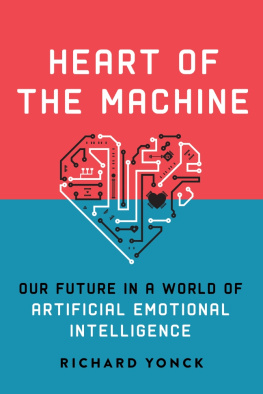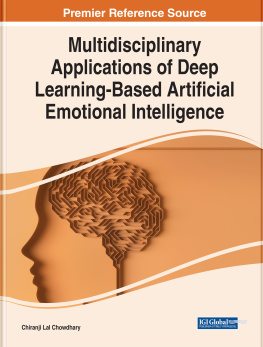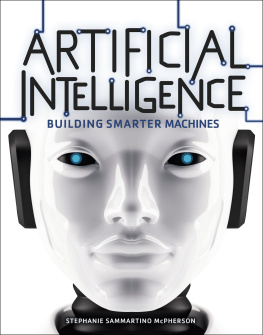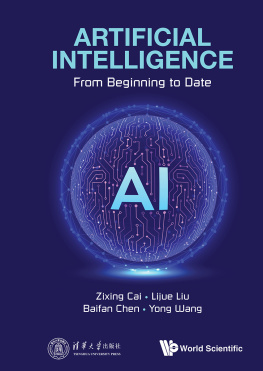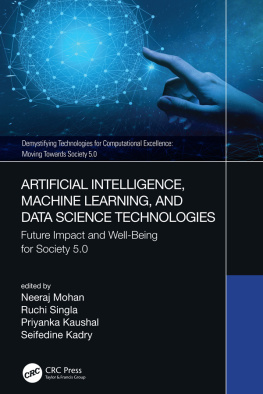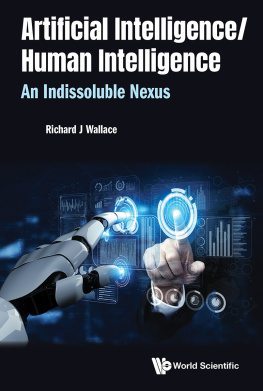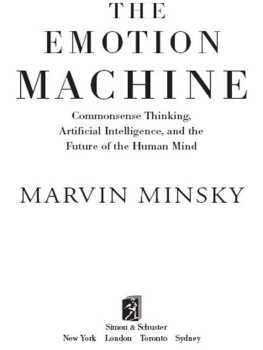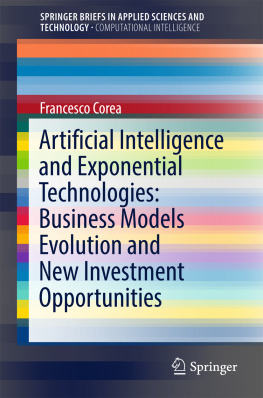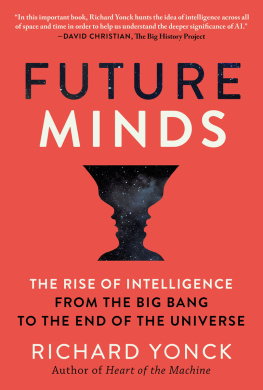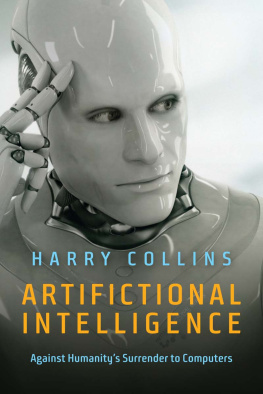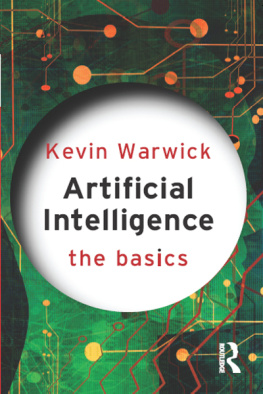Copyright 2017 by Richard Yonck
F IRST E DITION
All rights reserved. No part of this book may be reproduced in any manner without the express written consent of the publisher, except in the case of brief excerpts in critical reviews or articles. All inquiries should be addressed to Arcade Publishing, 307 West 36th Street, 11th Floor, New York, NY 10018.
Arcade Publishing books may be purchased in bulk at special discounts for sales promotion, corporate gifts, fund-raising, or educational purposes. Special editions can also be created to specifications. For details, contact the Special Sales Department, Arcade Publishing, 307 West 36th Street, 11th Floor, New York, NY 10018 or .
Arcade Publishing is a registered trademark of Skyhorse Publishing, Inc., a Delaware corporation.
Visit our website at www.arcadepub.com.
10 9 8 7 6 5 4 3 2 1
Library of Congress Cataloging-in-Publication Data
Names: Yonck, Richard, author.
Title: Heart of the machine : our future in a world of artificial emotional intelligence / Richard Yonck.
Description: New York : Arcade Publishing, [2017] | Includes bibliographical references.
Identifiers: LCCN 2016042954 (print) | LCCN 2016054187 (ebook) | ISBN 9781628727333 | ISBN 9781628727340 (ebook)
Subjects: LCSH: Artificial intelligence--Social aspects. | Human-computer interaction. | Emotional intelligence. | Affect (Psychology)--Computer simulation.
Classification: LCC Q335 .Y66 2017 (print) | LCC Q335 (ebook) | DDC 303.48/34--dc23
LC record available at https://lccn.loc.gov/2016042954
Jacket design by Erin Seaward-Hiatt
Printed in the United States of America
For the many teachers who have educated,
enlightened, and inspired me across the years.
Beginning with the very firstmy Mum and Dad.
CONTENTS
INTRODUCTION
Emotion. Its as central to who you are as your body and your intellect. While most of us know emotion when we see or experience it, many questions remain about what it is, how it functions, and even why it exists in the first place. Whats known for certain is that without it, you would not be the person you are today.
Now we find ourselves entering an astonishing new era, an era in which we are beginning to imbue our technologies with the ability to read, interpret, replicate, and potentially even experience emotions themselves. This is being made possible by a relatively new branch of artificial intelligence known as affective computing . A powerful and remarkable technology, affective computing is destined to transform our lives and our world over the coming decades.
To some this may all sound like science fiction, while to others it is simply another example of the relentless march of progress. Either way, we are growing closer to our technology than ever before. Ultimately this will lead to our devices becoming our assistants, our friends and companions, and yes, possibly even our lovers. In the course of it all, we may even see the dream (or nightmare) of truly intelligent machines come true.
From the moment culture and toolmaking began, the history and evolution of humanity and technology have been deeply intertwined. Neither humans nor machines would be anywhere close to what we are today without the immediate and ongoing aid of the other. This is an inextricable trend that, with luck, will continue for our worlds remaining lifespan and beyond.
This technological evolution is being driven by social and economic forces that mimic some of the processes of natural selection, though certainly not all of them. In an effort to attain competitive advantage, humans use technologies (including machines, institutions, and culture). In turn, these pass through a series of filters that determine a given technologys fitness within its overall environment. That environment, which blends societys physical, social, economic, and political realities, decides the success of each new development, even as it is modified and supported by every further advance.
Though natural and technological evolution share some similarities, one way they differ is in the exponential nature of technological change. While biology evolves at a relatively steady, linear pace that is dictated by factors such as metabolism, replication rates, and the frequency of nucleotide mutation, technological evolution functions within multiple positive feedback loops that actually accelerate its development.
One of the consequences of all of this progress is that it generates a need to create increasingly sophisticated user interfaces that allow us to control and interact with our many new devices and technologies. This is certainly borne out in my own experience developing interfaces for computer applications over many years. As technology theorist Brenda Laurel observed, The greater the difference between As a result, one ongoing trend is that we continue to develop interfaces that are increasingly natural to use, integrating them ever more closely with our lives and our bodies, our hearts, and our minds.
Heart of the Machine is about some of the newest of these natural interfaces. Affective computing integrates computer science, artificial intelligence, robotics, cognitive science, psychology, biometrics, and much more in order to allow us to communicate and interact with computers, robots, and other technologies via our feelings . These systems are being designed to read, interpret, replicate, and potentially even influence human emotions. Already some of these applications have moved out of the lab and into commercial use. All of this marks a new era, one in which were seeing the digitization of affecta term psychologists and cognitive scientists use to refer to the display of emotion.
While this is a very significant step in our increasingly high-tech world, it isnt an entirely unanticipated one. As youll see, this is a development that makes perfect sense in terms of our ongoing, evolving relationship with technology. At the same time, its bringing about a shift in that relationship that will have tremendous repercussions for both man and machine. The path it takes us down is far from certain. The world it could lead to may be a better place, or it might be a far worse one. Will these developments yield systems that anticipate and fulfill our every need before were even aware of them? Or will they give rise to machines that can be used to stealthily manipulate us as individuals, perhaps even en masse? Either way, its in our best interests to explore the possible futures this technology could bring about while we still have time to influence how these will ultimately manifest.
In the course of this book, multiple perspectives will be taken at different points. This is entirely intentional. When exploring the future, recognizing that it cant truly be known or predicted is critical. One of the best ways of addressing this is to explore numerous possible future scenarios and, within reason, prepare for each. This means not only considering what happens if the technology develops as planned or not, but also whether people will embrace it or resist it. It means anticipating the short-, mid-, and long-term repercussions that may arise from it, including what would otherwise be unforeseen consequences . This futurists view can help us to prepare for a range of eventualities, taking a proactive approach in directing how our future develops.
Heart of the Machine is divided into three sections. The first, The Road to Affective Computing, introduces our emotional world, from humanitys earliest days up to the initial development of emotionally aware affective computers and social robots. The second section, The Rise of the Emotional Machines, looks at the many ways these technologies are being applied, how well benefit from them, and what we should be worried about as they meet their future potential. Finally, The Future of Artificial Emotional Intelligence explores the big questions about how all of this is likely to develop and the effects it will have on us as individuals and as a society. It wraps up with a number of thoughts about consciousness and superintelligence and considers how these developments may alter the balance of the human-machine relationship.

